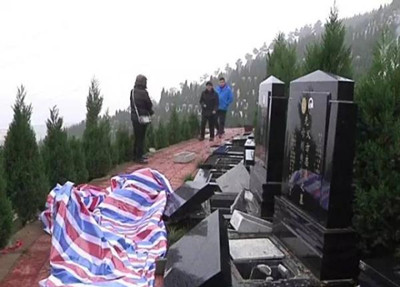Now the news continues.
A local court in east China's Jiangsu Province has sentenced a woman to two years in prison for growing thousands of poppy plants.
The woman, only identified by her surname Wang, was sentenced with a two-year reprieve and fined 5,000 yuan, roughly 780 U.S. dollars, after she was convicted of growing more than 2,200 opium poppy plants in her backyard.
Wang, a local farmer, said she asked for a poppy seed from a market vendor last year, when she found the plant was capable of easing her stomachache. She was detained in a police raid in May, when the flowers sprung up in her backyard.
China bans the growth of poppies, with Criminal Law stipulating whoever cultivates more than 500 plants but no more than 3,000 will be face fines, as well as fixed-term imprisonment, criminal detention or public surveillance.
Wang said she never grew the poppies intentionally, and that the plants were purely grown to treat her stomachache.
The story has fueled a heated discussion online.
A micro blog user says on her Weibo that with more than 2,200 poppy plants, she cannot say the plants were not grown intentionally.
In recent years, a number of poppy-related incidents have come to light, particularly in the food industry, with some small restaurants and snack bars adding poppy seeds containing morphine to food to keep customers coming back for more.
In June, two managers of a restaurant in central China's Hubei Province were arrested on suspicion of adding parts of the opium poppy plant to dishes.
Doctors say the seeds contain only a small amount of alkaloid, but long-term consumption will lead to addiction, damage to the nervous system and intoxication.

This is NEWS Plus Special English.
A group of thieves raided a cemetery in central China's Henan Province, stealing urns to use as bargaining chips to blackmail families of the deceased.
One of the victims surnamed Liu reported to the police that she had been in contact with members of a gang that had stolen her husband's ashes. Her husband's tomb had been looted, and his urn was missing. Another tomb nearby was also burglarized.
A telephone number had been left on the headstones of the ransacked tombs. When Liu called the number, the person that answered told her that the urn would only be returned if a ransom of 20,000 yuan, roughly 3,000 U.S. dollars was paid.
However, the tomb raiders demanded more money after the ransom was paid.
Police say the crime scenes indicate experienced and well-organized missions, based on the few evidence left at the scene. It could be the work of an organized gang that travels around the country to commit the offences.
Further investigations are underway.












